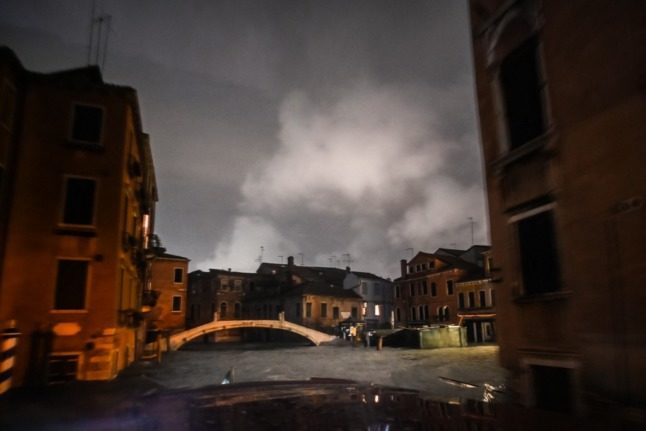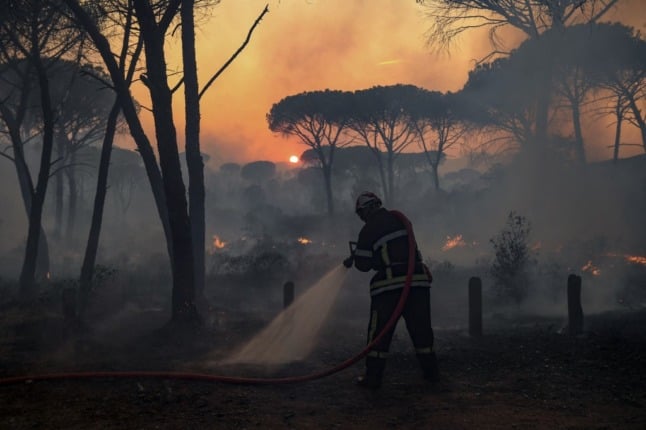An outdoor swimming pool (Freibad) was forced to close its doors early at the weekend due to a mass argument between customers.
Dozens of police police officers arrived at the Rheinbad in Düsseldorf on Saturday afternoon to calm the situation which reportedly involved up to 400 people.
Regional newspaper the Rheinische Post reported that a 53-year-old man had felt harassed by a small group of young people, and a large dispute developed from there.
The officers, who also became the target of insults after their arrival, managed to escort the man and his family safely out of the outdoor pool.
One person was arrested but was released from police custody on Saturday evening.
The operators of the pool decided to close the facility early due to the drama. A police spokesman said that there had been no physical conflict.
READ ALSO: Germany bakes in record June temperatures
 The Rheinbad was open again on Sunday, a sweltering hot day in Germany. Photo: DPA
The Rheinbad was open again on Sunday, a sweltering hot day in Germany. Photo: DPA
Bad atmosphere at pools
It’s not the first time in recent weeks there’s been unrest at a Freibad.
At a swimming pool in Essen last Monday, a group of young men reportedly attacked two lifeguards and a young girl. The city then doubled the number of security guards at the pool.
In Hesse tensions boiled over last Wednesday in front of an overcrowded bathing facility. Due to large crowds, the entrance was temporarily closed. But, according to police, about 200 people tried to enter the pool by force. Some people queuing threw stones and insulted security staff.
Meanwhile, at an outdoor swimming pool in Mannheim, a man sprayed pepper spray during a family argument on Saturday. Five people, including two children, suffered minor injuries.
Peter Harzheim, president of the Federal Association of German Pool Attendants, warned against volatile behaviour at outdoor pools.
“The atmosphere in the outdoor swimming pools is becoming more and more aggressive,” Harzheim told the Rheinische Post.
For about 10 to 15 years it has been getting worse every year, he added. “This is a frightening development. We have to take tough action.”
Christian Ochsenbauer from the German Society for Bathing added: “The topic of aggressiveness is currently making waves.” Ochsenbauer said he supported the call “to take tougher action” issued by the pool attendants association.
As the Local reported, swimming pools in Germany are also dealing with staff shortages. It is estimated there are at least 2,500 vacant posts for lifeguards at roughly 6,000 pools operated by local authorities or private companies across the country.
READ ALSO: German pools cut opening hours amid lifeguard shortage
Harzheim believes the development goes against the ethos of Germany's outdoor swimming culture: “A swimming pool is a place of relaxation, wellness, getting to know each other, communication,” he said. “You should be able to relax there.”




 Please whitelist us to continue reading.
Please whitelist us to continue reading.
was this caused by ethnic minorities?